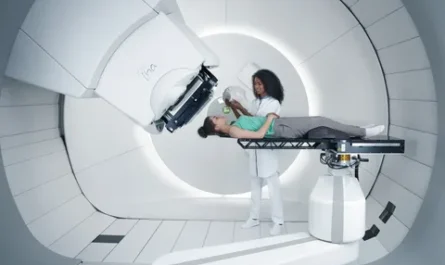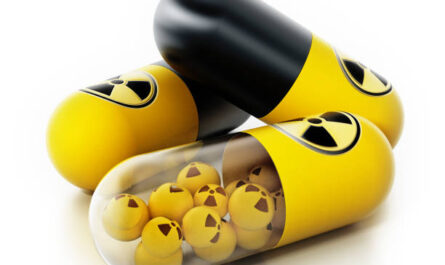
What is Short Bowel Syndrome?
Short Bowel Syndrome, also known as SBS, is a condition that occurs when a significant portion of the small intestine has been removed, or does not work properly. The small intestine, also called the small bowel, is where most of the digestion and absorption of food takes place. When a large part of the small intestine is removed or non-functioning, the body is unable to absorb enough water, vitamins, minerals, and nutrients from food.
Causes of Short Bowel Syndrome
There are several potential causes of Short Bowel Syndrome:
– Congenital conditions: Some babies are born with an abnormally short bowel due to genetic conditions like intestinal atresia. This occurs when parts of the intestine are abnormally narrow or missing.
– Surgical resection: A significant portion of the small intestine may need to be surgically removed due to diseases like Crohn’s disease, volvulus (twisting of the intestine), or Mesenteric ischemia. Cancer can also necessitate intestinal resection.
– Motility disorders: Rare conditions like intestinal pseudo-obstruction can cause abnormal nerve or muscle function in the bowel and effectively render portions of it non-functional.
Symptoms of Short Bowel Syndrome
The most common symptoms of SBS include:
– Diarrhea: Frequent, loose stools occur as the body tries to eliminate undigested food and fluid quickly before absorption can occur. Stools may be pale, greasy, or contain undigested food particles.
– Dehydration: Frequent loose stool leads to excessive fluid loss and dehydration as the body cannot absorb enough water from food.
– Malnutrition: The inability to absorb calories and essential nutrients like vitamins, minerals, protein can lead to weight loss and malnutrition over time if left untreated.
– Fatigue: Malabsorption of nutrients causes fatigue as the body does not receive adequate energy from food intake.
– Bone disease: Long-term malnutrition and vitamin D/calcium malabsorption can lead to osteopenia or osteoporosis.
Treatment and Management of Short Bowel Syndrome
There is no cure for SBS, but treatments focus on managing symptoms, maximizing nutrient absorption, and preventing complications. Lifestyle modifications and medical interventions work together:
– Dietary changes: Eating smaller, more frequent nutrient-dense meals with a focus on easily digestible carbohydrates, fats, and proteins. Thickening agents like cornstarch can slow intestinal transit time.
– Medications: Antidiarrheals, acid suppressants, hormones, and antibiotics may be used depending on the individual case.
– IV nutrition: Supplemental parenteral nutrition (PN) via a central IV line may be needed if malnutrition occurs despite optimal dietary changes. PN provides calories, fluids, vitamins, and minerals.
– Surgery: In rare cases, intestinal transplantation may be considered for patients who are entirely PN dependent.
– Monitoring: Patients need regular clinical and nutritional monitoring to check for dehydration, electrolyte issues, weight changes, and other complications. Adjustments to treatment are made accordingly.
With diligent management, many patients with Short Bowel Syndrome can live healthy and productive lives. A multidisciplinary team approach individualizes care to maximize each patient’s quality of life. While SBS has no cure, proper treatment goes a long way in compensating for intestinal inadequacy.
Prognosis and Complications of Short Bowel Syndrome
The prognosis of Short Bowel Syndrome depends highly on the extent of initial intestinal resection and the body’s ability to adapt:
– Adaptation: In some cases, the remaining intestine can develop enhanced absorptive functions over time through intestinal adaptation. This process improves the prognosis.
– Residual intestine length: In general, a residual small bowel length of less than 50cm portends a poor prognosis due to limited adaptive abilities. 100cm or more is associated with better chances of enteral autonomy.
Potential long-term complications include:
– Dehydration and electrolyte abnormalities: Frequent diarrheal losses pose risks like dehydration, low blood sodium, calcium, etc.
– Malnutrition and vitamin/mineral deficiencies: Prolonged inability to absorb nutrients sufficiently can lead to nutritional deficiencies.
– Liver disease: Long-term PN use carries risks of progressive liver disease like steatosis due to carbohydrate overload.
– Line infections: Central venous catheters for PN predispose to bloodstream infections which can become serious if recurrent.
– Bone disease: Malabsorption of calcium and vitamin D can lead to reduced bone mineral density and fractures over the years.
– Mortality: Death may occur in untreated cases due to complications of malnutrition/dehydration or due to line infections in PN dependent patients.
With the right management approach tailored to the individual, many of these complications can be effectively prevented or delayed in patients with Short Bowel Syndrome. Close monitoring plays a crucial role in maintaining health.



